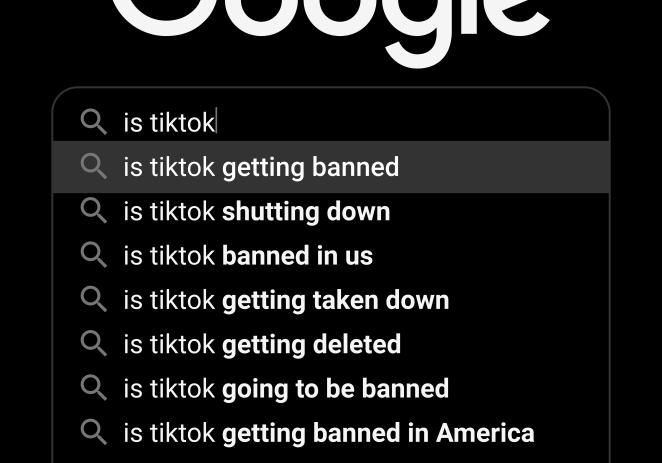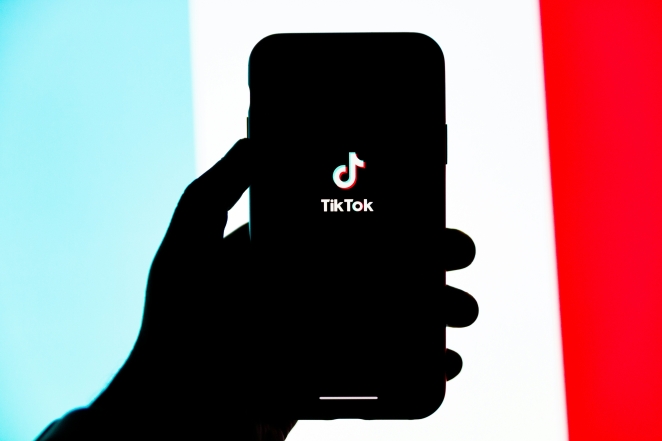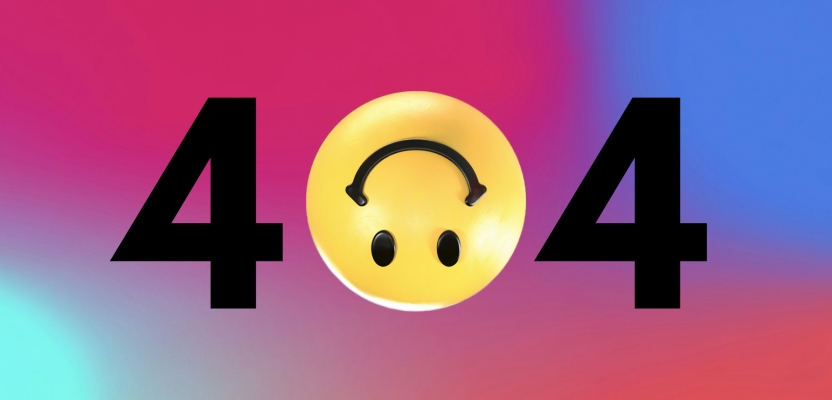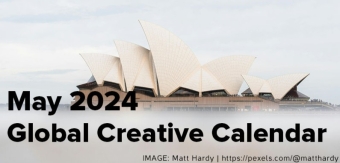You’re not likely to find me on TikTok anytime soon. I’m the kind of person who still refuses to listen to an album any other way than from start to finish, so short-form video is never going to appeal to me. However, it would appear I’m almost certainly in the minority, as TikTok has become arguably the most powerful player in the social media game in recent years. It’s also become an indispensable tool for brands and agencies.
Since its global launch in 2017, TikTok has seen explosive growth, becoming the go-to platform for viral content. Its unique algorithm that promotes content based on user engagement rather than follower count has effectively democratised content creation, allowing anyone to become a viral sensation overnight. For brands, this has meant a fertile ground for reaching a young, dynamic audience through creative, trend-setting campaigns.
However, with growing regulatory scrutiny emerging in the US and the fast-paced nature of digital trends in general, serious questions have been surfacing about the sustainability of TikTok's dominance on the social media stage.
Banning TikTok
The United States is actively considering a ban on TikTok due to national security concerns, particularly over the app's connections to its Chinese parent company, ByteDance. Recent legislative actions reflect a heightened scrutiny of TikTok's operations and the potential influence of the Chinese government on the platform. The US House of Representatives has passed a bill that would compel ByteDance to divest from TikTok or face a ban in the US. This move underscores the government's concerns about the potential for Chinese espionage and the misuse of American user data. Of course, TikTok are fighting back against a move it calls “unconstitutional” but it’s already been banned in India (back in 2020) and there are also increasing calls for a UK ban too.
The US bill, known as the “Protecting Americans from Foreign Adversary Controlled Applications Act,” mandates that ByteDance must divest its interest in TikTok within six months to avoid a ban. This action aligns with broader US efforts to mitigate risks posed by applications controlled by foreign adversaries. Despite TikTok's efforts to address these concerns, including storing US user data on domestic servers, the legislative push reached fever pitch this week, when President Joe Biden officially signed the bill into law.

The proposed ban has sparked considerable debate among lawmakers and the public. Some opponents argue that the focus on TikTok overlooks broader issues of data privacy, and caution against actions that could stifle free speech or innovation. However, proponents of the ban emphasise the need to protect national security and prevent foreign influence through technology. There is also a notable division in Congress regarding how to address the concerns surrounding TikTok, with some suggesting more comprehensive privacy legislation instead.
Another less pressing but more existential challenge is the volatile nature of the social media industry as a whole. The emergence of new platforms and innovations can quickly reshape the landscape, as seen with the rise of platforms like Snapchat and Vine, the latter of which completely faded away after a period of significant popularity. And, let’s be honest, what is TikTok if not Vine with a fresh coast of red and yellow paint?
The Impact on Brands and Agencies
If TikTok’s dominance were to wane, brands and agencies would need to adapt swiftly to maintain their engagement with audiences. Here are several implications and strategies that could emerge:
- Diversification of Social Media Strategy: Brands would need to diversify their social media presence to mitigate the risk of TikTok's declining influence. Investing in a multi-platform approach ensures that the connection with the audience is not disrupted. Platforms like Instagram, YouTube, and emerging players like Byte could gain more strategic importance.
- Innovation in Content Creation: The need for innovative content that resonates across various platforms will become crucial. Brands may need to invest more in quality content that can live beyond the fleeting trends of one platform, creating a more sustainable brand image and loyalty.
- Emphasis on Data Security and Privacy: With increasing scrutiny on data practices, brands would need to prioritize transparency and security in their campaigns, aligning with platforms that safeguard user data effectively. This shift could alter partnership decisions and campaign investments, favoring platforms with robust data protection policies.
- Exploring New Advertising Technologies: As platforms evolve, so too will advertising technologies. Brands might explore advancements in augmented reality (AR), virtual reality (VR), and AI-driven personalized advertising to engage users in innovative ways that transcend traditional social media boundaries.
- Community and Niche Marketing: A decline in TikTok's popularity could lead to a resurgence in community-focused and niche platforms where brands can target specific demographics with tailored content. This approach could lead to more genuine engagement and conversion rates.
The Long-Term View
While it's uncertain whether TikTok's time is indeed coming to an end, given the complexities involved (and I’m no politician), what is clear is the need for brands and agencies to remain agile and forward-thinking.

The potential decline of TikTok, whether imminent or not, serves as a reminder for brands and agencies to stay versatile, embrace innovation, and continuously seek to understand and engage their audience. Basically, keep moving forward and don’t put all your eggs in one basket. Well-worn advice, perhaps, but rather apt in this case methinks.
More Creative Opinions
Mischa McInerney, Chief Marketing Officer at Digital Marketing Institute
When TikTok first rocketed to popularity, questions emerged around whether the platform was here to stay - is it just a fad, and another trend that will soon die down or will its demand remain? The short form video platform seemingly took the world by storm, and is yet to loosen its grip on consumers.
Brands such as Duolingo, Aldi and RyanAir jumped on the back of TikTok trends which sent them straight to virality. Similarly, some brands have turned to the ‘TikTok shop’ function of the platform to invest in social commerce and boost sales.
Off the back of this, some brands and marketers have carved out job roles in which managing TikTok accounts is their sole responsibility. And more broadly, across most marketing teams, creating engaging TikTok content often takes up a large portion of a marketers job description.
But now, just as marketing teams have adapted to the new social media platform, current strategies are in jeopardy. There’s serious talk of a TikTok ban, and those brands who dedicated a large chunk of marketing budget to the platform, now face the possibility of a real strategy shake up.
If a ban was to be put in place, those whose job roles largely revolve around TikTok could be at risk, therefore contingency plans should be put in place.
Marketers should be equipped with the knowledge to leverage all social platforms, as well as other forms of marketing. Influencer marketing is one avenue to consider, however, it should be kept in mind that some influencers are native to one platform. This is another prime example of why marketers need to really focus on diversifying their presence across social media platforms and their content creation.
The obvious place to look is TikTok’s main competitors - social platforms such as Instagram and Facebook, which have their own short form video offerings, or YouTube shorts, are a good place to start. TikTok is undeniably popular amongst Gen Z, but it’s not the only platform younger consumers frequent. The short form aspect of TikTok is ultimately what drove its success after all, so natural progression for consumers would be to fill the void of short snappy videos on these alternative platforms.
Still, the ongoing news surrounding the ban should act as a wakeup call to marketers. Marketing managers need to ensure they’re regularly upskilling their teams in other areas, ensuring that those in the industry are not being pigeonholed into one niche- a niche that could, similarly to TikTok, potentially fade out.
Steven McKeon, founder and CEO of MacguyverTech and MacNerd
The U.S. has an estimated 170 million TikTok users nationwide — many of whom are young people.
“My thoughts are that the app should be banned in America,” asserts Steven McKeon, cybersecurity expert and founder of MacguyverTech. “I believe that application was purposely sent from China to corrode American youth.”
Critics of the app, including McKeon, cite concerns over kids’ use of TikTok that include exposure to inappropriate content and misinformation; engaging kids in dangerous behavior (through the form of challenges); cyberbullying; its addictive nature, which can impact sleep, attention span and overall mental health; and data privacy — a significant risk for TikTok users of all ages, notes McKeon.
“I have direct experience with a client here in America who was hacked,” McKeon said. “TikTok was aggressively copying data from the app and then sending it directly to China. We saw in real time how the TikTok app was being used and very maliciously.”
Calling the app’s data sharing “extremely dangerous” and “an ongoing security threat to our infrastructure,” McKeon supports more vigorous efforts to protect children from online threats, more measures to safeguard the privacy of all users, and more robust ways of making companies liable for inappropriate or inaccurate content shared on their platforms.
“It’s more important than ever to stay safe on the web and take steps to protect all technology assets,” McKeon added.






